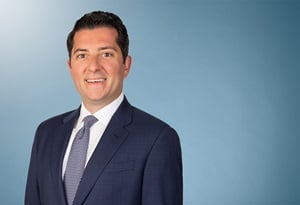Antitrust Scrutiny of Private Equity in Health Care Intensifies
At a Glance
- The FTC hosted a public workshop exploring the role of private equity (PE) in health care, regulators’ “growing concerns” about PE’s role in the industry, and the need to address “harmful effects.”
- The FTC, DOJ and HHS jointly issued a Request for Information seeking information regarding the effects of health care transactions conducted by PE funds or other alternative asset managers, health systems and private payers — even if those transactions fall under the current $119.5 million threshold for Hart-Scott-Rodino Act filing. The public comment period ends on May 6, 2024.
- State and federal agencies are taking a broad approach to address health care transactions involving PE. This includes revisions to the Merger Guidelines, which now squarely address “roll-up” strategies and serial acquisitions, new legislation at the state level mandating review of health care transactions, and other policy and enforcement tools.
In recent years, federal and state antitrust agencies have been increasingly focused on the impact of private equity involvement in the health care sector. Two recent developments in March 2024 reinforce that this heightened scrutiny is here to stay — and will continue to intensify under the Biden administration.
On March 5, 2024, the Federal Trade Commission (FTC) hosted a public workshop exploring the role of private equity (PE) in health care, regulators’ “growing concerns” about PE’s role in the industry, and the need to address “harmful effects.” Participants included individuals from the FTC, Department of Justice (DOJ), Department of Health and Human Services (HHS), Centers for Medicare & Medicaid Services (CMS), and providers and researchers who weighed in to express their concerns and offer insights on enforcement and proposed policies.
This public workshop was held on the same day that the FTC, DOJ and HHS jointly issued a Request for Information (RFI) seeking public comment on the impact of “corporate greed” in health care. The RFI seeks information regarding the effects of health care transactions involving PE funds or other alternative asset managers, health systems and private payers — even if those transactions fall under the current $119.5 million threshold requiring a Hart-Scott-Rodino Act (HSR) notification to FTC and DOJ. The public comment period ends on May 6, 2024.
Antitrust Enforcement
For the past few years, the antitrust agencies have expressed concern about the role of PE, finding that PE transactions may commoditize health care and prioritize profits over patient health, workers and costs. These concerns were reiterated by FTC Chair Lina Khan and DOJ Assistant Attorney General Jonathan Kanter. Specifically, Chair Khan mentioned that workers and patients have expressed concerns to the FTC about “punishing hours and sharp decline in patient care” as a result of PE in health care. Assistant AG Kanter emphasized the need to protect the type of care at community hospitals, noting that “we will do everything we can at the antitrust division” to protect this type of care.
As we’ve recently seen, panelists at the workshop emphasized the need to utilize today’s antitrust enforcement laws and tools to address PE in health care. Because many PE firms undertake serial acquisitions via “roll-up” strategies, this includes the new Merger Guidelines issued by the DOJ and FTC in December 2023, which now squarely address serial acquisitions. The new Merger Guidelines also recognize the agencies’ ability to block a multi-sided platform company’s acquisitions when the cumulative effect is anticompetitive. Now, instead of merely considering individual acquisitions in isolation, the agencies will analyze the entire series of acquisitions to ensure that illegal “roll-ups” do not evade antitrust scrutiny. For example, in September 2023, the FTC filed an action against a private equity firm and anesthesiology group, alleging that the defendants engaged in an anticompetitive “roll-up” strategy that involved buying nearly every large anesthesia practice in Texas. According to the FTC’s complaint, the group has become the dominant provider of anesthesia services in Texas, extracting monopoly profits and growing its monopoly power, “thanks to its anticompetitive conduct.”
Additionally, panelists shared that there is a continued interest in unwinding interlocking directorates — i.e., when a representative from a competitor is a board member of one of its competitors. The DOJ’s enforcement of interlocking directorates under Section 8 of the Clayton Act has picked up in the last few years, as we’ve previously reported. At the workshop, Assistant AG Kanter confirmed that the DOJ would specifically analyze illegal interlocking directorates posed by PE ownership.
Further, at the state level, the health care industry will see new and additional legislation specifically targeting PE in health care, and a rise in enforcement action. For example, a recently proposed bill in California would require PE firms to receive approval from the California AG before acquiring a health care facility or physician group. Additionally, state AGs may use their authority to enforce antitrust laws to intervene when PE firms engage in anticompetitive behavior, aided by enhanced HSR-like notification requirements that have been adopted across nearly 20 states.
Other Proposed Policies and Enforcement Tools
The proposed policy solutions and enforcement tools targeting PE in health care are not limited to antitrust enforcement. Panelists at the FTC workshop suggested a wide array of strategies that could be used, many of which are already being put into action across the country:
- Increasing transparency around PE ownership of nursing homes, hospitals and other health care facilities
- Improving accountability of PE owners so they cannot insulate themselves from liability arising from safety issues or fraudulent behavior
- Linking enforcement of fraud and abuse laws back to management strategies and PE firms, instead of limiting enforcement to clinicians or billing and coding personnel
- Strengthening state corporate practice of medicine (CPOM) doctrines to protect the clinical decision-making autonomy of clinicians
- Closing payment loopholes that PE is exploiting to increase revenue
Conclusion
The conversations at the FTC workshop add to the ongoing dialogue about the role of PE in health care and demonstrate that the antitrust agencies and various other stakeholders at the state and federal level are keenly focused on the effects of PE investment in health care. As illustrated by the RFI — as well as the antitrust focus on PE in the proposed changes to the HSR Form and the newly adopted Merger Guidelines — there is a continued interest in investigating PE’s impact in the health care market and developing strategies to address it.
The material contained in this communication is informational, general in nature and does not constitute legal advice. The material contained in this communication should not be relied upon or used without consulting a lawyer to consider your specific circumstances. This communication was published on the date specified and may not include any changes in the topics, laws, rules or regulations covered. Receipt of this communication does not establish an attorney-client relationship. In some jurisdictions, this communication may be considered attorney advertising.





